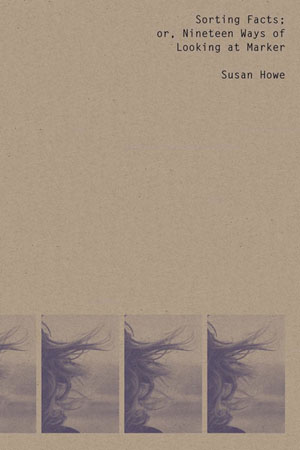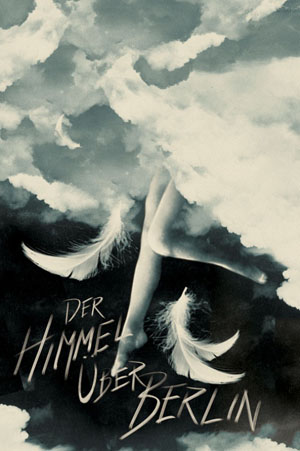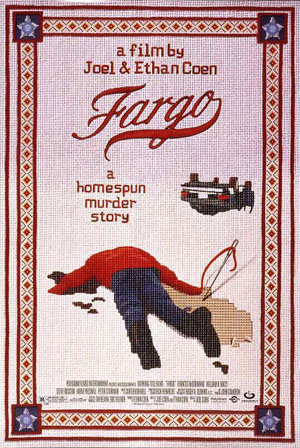The Los Angeles Review of Books has posted an intriguing double feature today. First up, Rebecca Ariel Porte: “Susan Howe’s Sorting Facts, or Nineteen Ways of Looking at Chris Marker is a self-declared experiment in ‘poetic documentary’ (elsewhere, she calls it ‘factual telepathy’) that echoes and transmutes the forms favored by its ostensible subject: the late Chris Marker, director of La jetée, Sans soleil, and much else besides.” And Jonathan Cushing revels in the fact that “the Olympics were one of Marker’s lifelong fascinations.”
“Yasujiro Ozu’s cinephilia has been well known for some time now, especially his love of American movies,” writes Notebook editor Daniel Kasman. “His existent early films are filled with gags and posters directly referencing Hollywood cinema. Recently, I found an unusually specific citation….”
“With the indispensable assistance of our web tsarina Meg Hamel, I’ve just put up an essay on Hollywood film of the 1940s,” blogs David Bordwell. “It’s called ‘Murder Culture: Adventures in 1940s Suspense.’ It’s long, I warn you. But if you’re interested in American film history, thrillers, Alfred Hitchcock, or all of the above, you could find it worth checking out…. I’m now writing a book, one that’s relatively short (honest!) and that, I hope, creates an original perspective on American film of the 1940s.”
At Filmmaker, Ariston Anderson presents “10 Lessons on Filmmaking from Director Ken Loach.”
William Gibson wrote a screenplay for Alien 3 that 20th Century Fox paid him for (handsomely, too, evidently) but never used. At Movies.com, Peter Hall sketches a little background—and links to the entire screenplay.
Peter Bogdanovich has posted a second batch of notes he kept on the films of Ernst Lubitsch from 1952 through 1970.
In 1954, Edward Jay Epstein was paid $10 a week to watch movies for his Lit 311 professor, Vladimir Nabokov: “Every Wednesday, the movies changed at the four theaters in downtown Ithaca, called by Nabokov ‘the near near,’ ‘the near far,’ ‘the far near,’ and ‘the far far.’ My task, which used up most of my weekly payment, was to see all four new movies on Wednesday and Thursday, and then brief him on them on Friday morning. He said that since he had time to see only one movie, this briefing would help him decide which one of them, if any, to see. It was a perfect job for me: I got paid for seeing movies.”
Renowned designer Brandon Schaefer has launched a new column on movie posters, art, and design at Film.com.
Book. Peter Nellhaus recommends Southeast Asian Independent Cinema, a collection of essays and documents edited by Tilman Baumgärtel which also includes Tilman’s interviews with Lav Diaz, Brillante Mendoza, Apichatpong Weerasekathul, Pen-Ek Ratanaruang, Nia Dinata, Eric Khoo, “as well as one of the last interviews with Yasmin Ahamad before her untimely death at age 51.”
New York. “Former Vogue photographer [William] Klein revisited the haute couture scene that launched his star with Mode in France [1984], a free-associative not-quite-doc that warmly examines its fundamentally superficial subject while also suggesting a certain ambivalence about it,” writes Dan Sullivan in the L. “Come for the obnoxious and adamantly 80s synth score (composed by Serge Gainsbourg), stay to watch Grace Jones perform a play by Marivaux in a g-string (in the section on Azzedine Alaïa).” Tomorrow at the Museum of Art and Design.
Philadelphia. A Spotlight on Shintoho begins tonight at the International House.
Brussels. Tonight at Galeries: DISSENT ! Hartmut Bitomsky.
Paris. Jocelyne Saab, a retrospective at the Cinémathèque française, opens tomorrow and runs through May 24.
As part of the monthly Cinéma 61 series, Jean-Michel Frodon will be screening a set of shorts on Saturday, around brunch time.
In the works. Fox Searchlight has acquired worldwide rights to Wes Anderson’s The Grand Budapest Hotel, reports Jeremy Kay for Screen Daily: “The story involves the theft and recovery of a priceless Renaissance painting, the battle for an enormous family fortune and the slow and then sudden upheavals that transformed Europe during the first half of the 20th century. A powerhouse cast features Ralph Fiennes, Edward Norton, Owen Wilson, Tilda Swinton, Jude Law, Bill Murray, Adrien Brody, Harvey Keitel, Jason Schwartzman, Willem Dafoe, Jeff Goldblum, Saoirse Ronan, Tom Wilkinson, Mathieu Amalric, F Murray Abraham, Bob Balaban and Tony Revolori.”
“Andy and Lana Wachowski will be producing a show for Netflix with Babylon 5 creator J. Michael Straczynski,” reports Jesse David Fox at Vulture. Sense8 “will be the Wachowskis’ first foray into ‘television.’ Its ten-episode first season is scheduled to premiere in late 2014.”
Also heading to television, minus the air quotes, are Charlie Kaufman (How & Why is about a man who knows “how and why a nuclear reactor works, but is clueless about life”) and Joel and Ethan Coen, who’ll be executive producing a series based on Fargo (1996). Both are FX projects and Oliver Lyttelton gathers details at the Playlist. By the way, Cinephilia and Beyond has posted the complete screenplay for Fargo, while, at Press Play, Jed Mayer revisits the film’s “Bleak Spaces and Blank Faces”—and Lincoln Flynn, Stacia Kissick Jones, and Alan Pyke all argue that the Coens’ No Country for Old Men (2007) is way overrated.
Nicolas Winding Refn’s Only God Forgives is “part of the same dream as Drive, but it’s more of a nightmare,” Ryan Gosling tells the Playlist‘s Edward Davis, who also asks about his work with Terrence Malick this past summer: “I’m in the music one. [Michael] Fassbender, Rooney Mara, Cate Blanchett, Natalie Portman, Val Kilmer, Patti Smith, Robert Plant, Johnny Rotten, the Black Lips, just I mean every day was unlike anything…. He’s cutting like five movies right now, one of which is about the creation of the universe that he’s been working on for the last fifteen years but I’m not in that one I don’t think.”
Viewing. Catherine Grant talks with Tom Brown, Lecturer in Film Studies at Kings College, London, about “direct address in the cinema, a topic he knows a huge amount about as author of the only book completely dedicated to it: Breaking the Fourth Wall: Direct Address in the Cinema (Edinburgh: Edinburgh University Press, 2012). You can read the preface to Tom’s book online here (PDF), check out another article he uploaded about it here, and visit his wonderfully illustrated Tumblr on the topic here.”
Obit. “Edward Bland made only one film before deciding to pursue a career as a musician, composer and arranger,” writes Paul Vitello for the New York Times. “And that film, The Cry of Jazz, a 34-minute documentary explaining jazz in the context of black history, was by his own account amateurish. But within a year of its release in 1959, The Cry of Jazz, which Mr. Bland produced on a shoestring budget with some friends, became an improbable film landmark of sorts—not as a work of art but as a manifesto of black militancy.” Bland was 86 when he died two weeks ago.
Daniel Forman in the Guardian: “My grandfather, Stanley Forman, who has died aged 91, was a lifelong communist, trade unionist and filmmaker, but was best known as a collector and distributor of rare documentary footage from behind the iron curtain.”
For news and tips throughout the day every day, follow @KeyframeDaily on Twitter and/or the RSS feed. Get Keyframe Daily in your inbox by signing in at fandor.com/daily. And just for fun, we’re tumbling, too.






